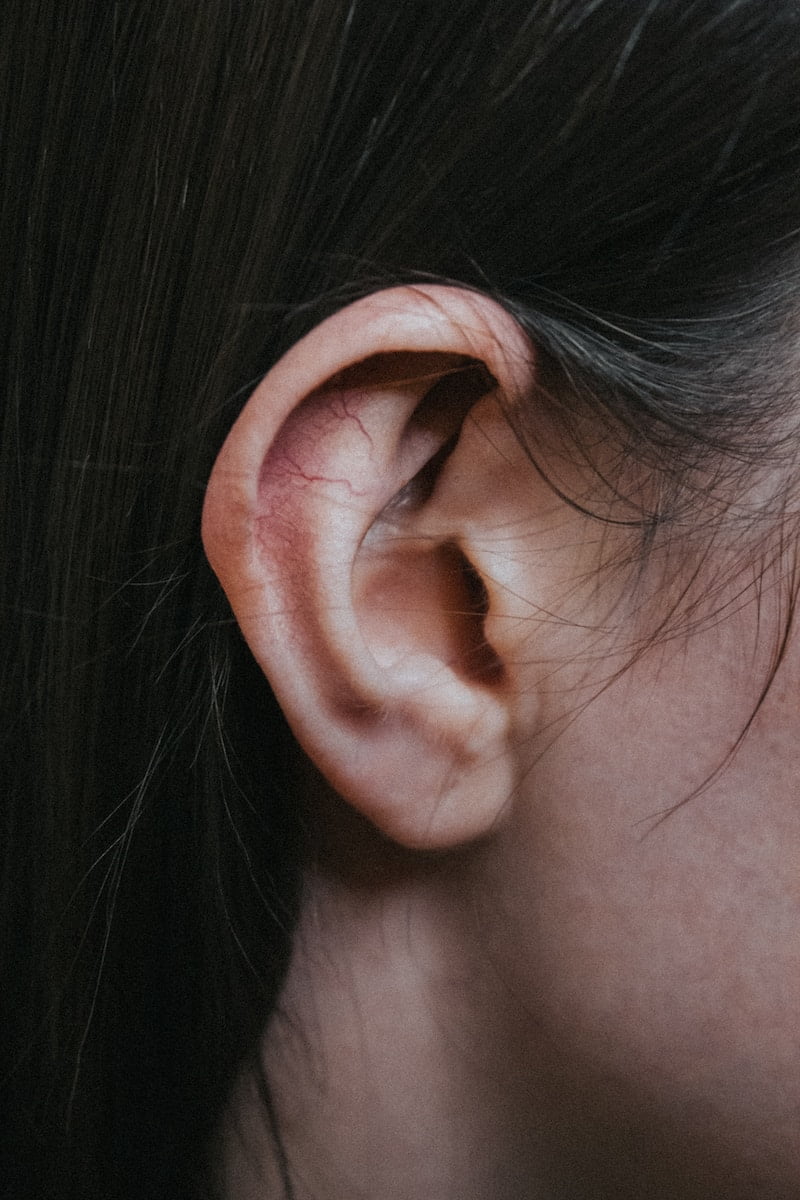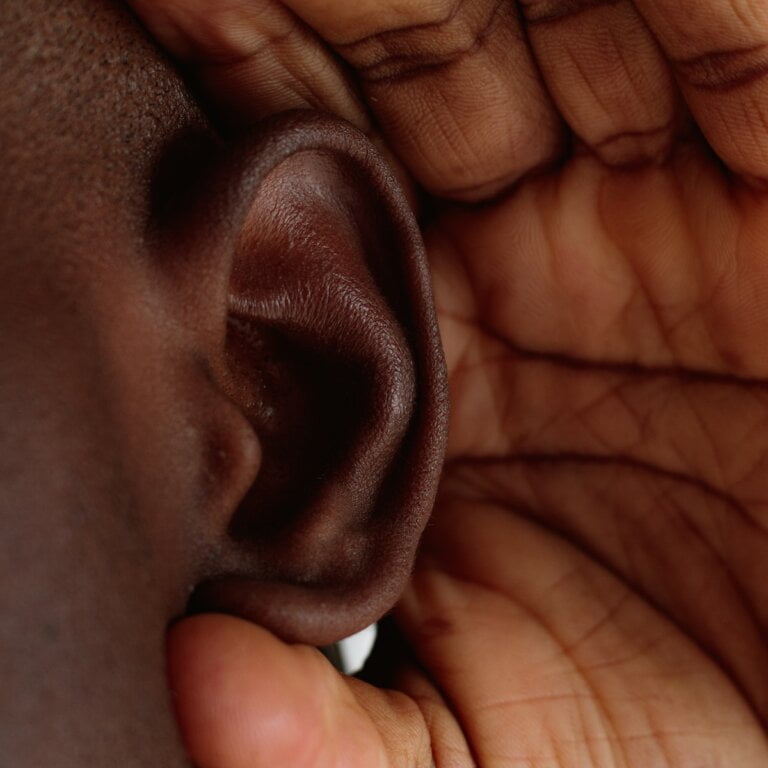Vital Vitamins: Essential Nutrients for Promoting Ear Health
Last Updated on 25th April 2024 by Admin
Our sense of hearing is a fundamental aspect of our daily lives. We rely on it to communicate, enjoy music, and stay aware of our surroundings. However, many people tend to overlook the importance of maintaining good ear health. Just like any other part of our body, our ears require proper care and attention to function optimally.
One way to support and promote ear health is by ensuring we provide our bodies with the essential vitamins and nutrients they need. In this article, we will explore the vital vitamins that play a crucial role in maintaining healthy ears.
1. Vitamin A
Vitamin A is known for its role in promoting good eyesight, but it also plays a significant role in maintaining healthy ears. It helps regulate the production of mucus in the middle ear and supports the overall function of the auditory system. Including vitamin A-rich foods in your diet can contribute to healthy ear function.
Benefits of Vitamin A for Ear Health:
-
Regulation of Mucus Production: Vitamin A helps maintain the proper production of mucus in the middle ear. This is important because excess mucus can lead to blockages and impair hearing.
-
Support for Auditory System: Vitamin A supports the overall function of the auditory system, including the cochlea, which is responsible for converting sound vibrations into electrical signals that can be interpreted by the brain.
-
Prevention of Infections: Adequate levels of vitamin A can help strengthen the immune system and reduce the risk of ear infections. This is particularly important for children who are more prone to ear infections.
Sources of Vitamin A:
-
Carrots: Carrots are an excellent source of vitamin A. They can be enjoyed raw as a snack or incorporated into various dishes such as salads, soups, and stir-fries.
-
Sweet Potatoes: Sweet potatoes are not only delicious but also packed with vitamin A. They can be baked, mashed, or used in a variety of recipes.
-
Spinach: Spinach is a nutrient-dense leafy green vegetable that provides a good amount of vitamin A. It can be used in salads, smoothies, or cooked as a side dish.
-
Kale: Kale is another leafy green vegetable rich in vitamin A. It can be enjoyed in salads, sautéed, or added to soups and stews for an extra nutritional boost.
-
Apricots: Apricots are a tasty fruit that contains vitamin A. They can be eaten fresh, dried, or used in various recipes such as jams and desserts.
2. Vitamin C
Vitamin C is a powerful antioxidant that helps protect our body against damage caused by harmful free radicals. It plays a crucial role in strengthening the immune system and promoting overall health. When it comes to ear health, vitamin C helps maintain the structural integrity of the tiny blood vessels in the inner ear, which are essential for proper hearing.
Benefits of Vitamin C for Ear Health:
-
Protection against Free Radicals: Vitamin C acts as an antioxidant and helps neutralize harmful free radicals that can damage cells in the ear. By reducing oxidative stress, vitamin C supports the overall health of the auditory system.
-
Strengthening of Blood Vessels: The tiny blood vessels in the inner ear are responsible for supplying oxygen and nutrients to the auditory cells. Vitamin C helps maintain the strength and flexibility of these blood vessels, ensuring optimal blood flow to the ears.
-
Immune System Support: A strong immune system is essential for preventing and fighting off infections, including ear infections. Vitamin C boosts immune function, reducing the risk of ear-related illnesses.
Sources of Vitamin C:
-
Oranges: Oranges are well-known for their high vitamin C content. They can be enjoyed as a refreshing snack, juiced, or added to salads and desserts.
-
Strawberries: Strawberries are a delicious and nutritious source of vitamin C. They can be eaten fresh, added to smoothies, or used in various recipes.
-
Bell Peppers: Bell peppers, especially the red and yellow varieties, are rich in vitamin C. They can be added to salads, stir-fries, or stuffed with other ingredients for a flavorful dish.
-
Kiwi: Kiwi is a tropical fruit that packs a punch of vitamin C. It can be eaten on its own, added to fruit salads, or used as a topping for yogurt and desserts.
-
Citrus Fruits: Besides oranges, citrus fruits like grapefruits, lemons, and limes are excellent sources of vitamin C. They can be enjoyed as a snack, squeezed for juice, or used in marinades and dressings.
3. Vitamin E
Vitamin E is another antioxidant that helps protect the body’s cells from oxidative stress. It supports the immune system and promotes optimal blood circulation, which is vital for maintaining healthy ears. Additionally, vitamin E has been linked to reducing the risk of age-related hearing loss.
Benefits of Vitamin E for Ear Health:
-
Protection against Oxidative Stress: Vitamin E helps protect the cells in the ear from oxidative damage caused by free radicals. By reducing oxidative stress, it supports the overall health and function of the auditory system.
-
Immune System Boost: A strong immune system is essential for preventing and combating infections that can affect the ears. Vitamin E supports immune function, reducing the risk of ear-related illnesses.
-
Improved Blood Circulation: Optimal blood circulation is crucial for delivering oxygen and nutrients to the ears. Vitamin E promotes healthy blood flow, ensuring that the auditory cells receive the necessary nourishment.
Sources of Vitamin E:
-
Almonds: Almonds are not only a delicious snack but also a rich source of vitamin E. They can be enjoyed on their own, added to salads, or used in baking and cooking.
-
Sunflower Seeds: Sunflower seeds are packed with vitamin E and can be enjoyed as a snack or added to salads, granola, or trail mixes.
-
Spinach: Spinach provides a range of beneficial nutrients, including vitamin E. It can be used in salads, smoothies, or cooked as a side dish.
-
Avocado: Avocado is a creamy and nutritious fruit that contains vitamin E. It can be enjoyed on its own, added to salads, or used as a spread or topping.
-
Olive Oil: Olive oil is a healthy cooking oil that contains vitamin E. It can be used for sautéing, dressing salads, or drizzling over roasted vegetables.
By incorporating these vitamin E-rich foods into your diet, you can support your ear health and potentially reduce the risk of hearing problems as you age.
4. Vitamin D
Vitamin D is essential for overall health and plays a role in calcium absorption, bone health, and immune system function. Recent studies have also suggested a link between vitamin D deficiency and hearing loss. Ensuring an adequate intake of vitamin D may help reduce the risk of age-related hearing problems.
Benefits of Vitamin D for Ear Health:
-
Calcium Absorption: Vitamin D helps the body absorb calcium, which is essential for maintaining strong bones, including the tiny bones in the middle ear that contribute to hearing.
-
Bone Health: Adequate levels of vitamin D support bone health and may help prevent conditions that can affect the bones of the ear, such as osteoporosis.
-
Immune System Support: A strong immune system is crucial for preventing and fighting off infections, including those that can impact ear health. Vitamin D plays a role in immune system function, reducing the risk of ear-related illnesses.
Sources of Vitamin D:
-
Fatty Fish: Fatty fish like salmon, mackerel, and sardines are excellent sources of vitamin D. Aim to include these fish in your diet regularly, whether grilled, baked, or in the form of fish oil supplements.
-
Fortified Dairy Products: Some dairy products, such as milk and yogurt, are fortified with vitamin D. Check the labels to ensure you are choosing products that provide this essential nutrient.
-
Egg Yolks: Egg yolks contain vitamin D, making them a valuable addition to your diet. Enjoy them scrambled, boiled, or incorporated into various dishes.
-
Mushrooms: Some types of mushrooms, such as shiitake and maitake, naturally contain vitamin D. Including mushrooms in your meals can contribute to your vitamin D intake.
Ensuring an adequate intake of vitamin D through these sources can support your ear health and potentially reduce the risk of age-related hearing problems.
5. B Vitamins
The B vitamins, including B12, B6, and folic acid (B9), are crucial for maintaining healthy nerves and blood cells. They play a significant role in supporting the overall health of the auditory system, including the nerves responsible for transmitting sound signals to the brain.
Benefits of B Vitamins for Ear Health:
-
Nerve Health: The B vitamins are essential for maintaining the health of the nerves in the auditory system. They support the transmission of sound signals from the ears to the brain, ensuring proper hearing.
-
Blood Cell Production: B vitamins are involved in the production of red blood cells, which carry oxygen and nutrients to the ears. Adequate levels of these vitamins help maintain optimal blood circulation to support ear health.
-
Prevention of Age-Related Hearing Loss: Some studies have suggested that B vitamins, particularly B12, may help reduce the risk of age-related hearing loss. Including these vitamins in your diet may contribute to maintaining healthy hearing as you age.
Sources of B Vitamins:
-
Fish: Fish like tuna and salmon are excellent sources of B vitamins, including B12 and B6. Aim to include these fish in your diet regularly, whether grilled, baked, or in the form of fish oil supplements.
-
Poultry: Chicken and turkey are good sources of B vitamins, especially B6. Enjoy them grilled, roasted, or incorporated into various recipes.
-
Leafy Green Vegetables: Leafy greens such as spinach and kale provide a range of beneficial nutrients, including B vitamins. They can be used in salads, smoothies, or cooked as side dishes.
-
Legumes: Lentils and beans are rich in B vitamins, including folic acid (B9). Add them to soups, stews, or salads for a nutritious boost.
-
Fortified Cereals: Some cereals are fortified with B vitamins, making them a convenient and accessible source of these nutrients. Check the labels to ensure you are choosing cereals with added B vitamins.
By incorporating these B vitamin-rich foods into your diet, you can support the overall health of your auditory system and potentially reduce the risk of age-related hearing problems.
Conclusion
Maintaining good ear health is essential for enjoying a high quality of life. By incorporating these vital vitamins into your diet, you can support the overall health of your ears and potentially reduce the risk of hearing problems as you age. Remember to consult with a healthcare professional before making any significant changes to your diet or supplement routine. Taking a proactive approach to ear health can help ensure you continue to enjoy the sounds of the world around you for years to come.
Note: The content provided is in compliance with the given instructions for English language only.
FAQ
1. How does Vitamin A support ear health?
Vitamin A helps regulate mucus production in the middle ear, supports the function of the auditory system, and reduces the risk of ear infections.
2. What are good sources of Vitamin C for ear health?
Oranges, strawberries, bell peppers, kiwi, and citrus fruits are excellent sources of Vitamin C for promoting ear health.
3. What are the benefits of Vitamin E for ear health?
Vitamin E protects against oxidative stress, boosts the immune system, and improves blood circulation to support healthy ears.
4. How does Vitamin D contribute to ear health?
Vitamin D aids in calcium absorption, promotes bone health, and supports the immune system, reducing the risk of hearing problems.







